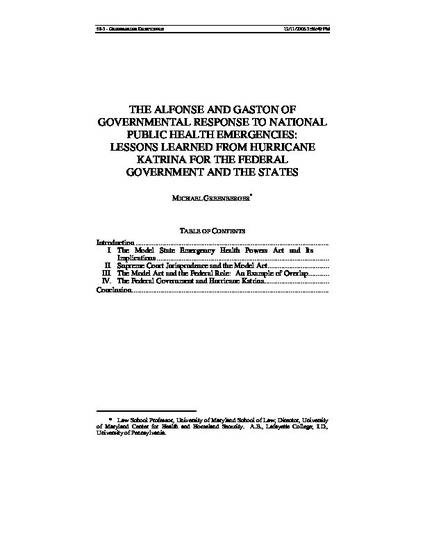
- National Response Plan,
- Hurricane Katrina,
- Commerce Clause,
- Department of Homeland Security,
- Model State Emergency Health Powers Act,
- preemption,
- interstate commerce,
- Incident of National Significance
Hurricane Katrina renewed an old debate concerning which level of government should lead the response effort to catastrophic disasters. Traditionally, emergency response is handled at the most local level possible. Hurricane Katrina, however, and other catastrophes that may be labeled "Incidents of National Significance," are examples of emergencies of such magnitude that federal assets must be brought to bear to respond adequately to the situation. As such Incidents will almost always affect interstate commerce, Congress' commerce powers justify federal intervention in, and if necessary, supervision of the response. In such situations, the National Response Plan provides for extensive coordination between the federal government and states and localities, thus respecting the tradition of states and localities as first responders to incidents, while ensuring that federal resources may be utilized.

With permission of the American Bar Association.